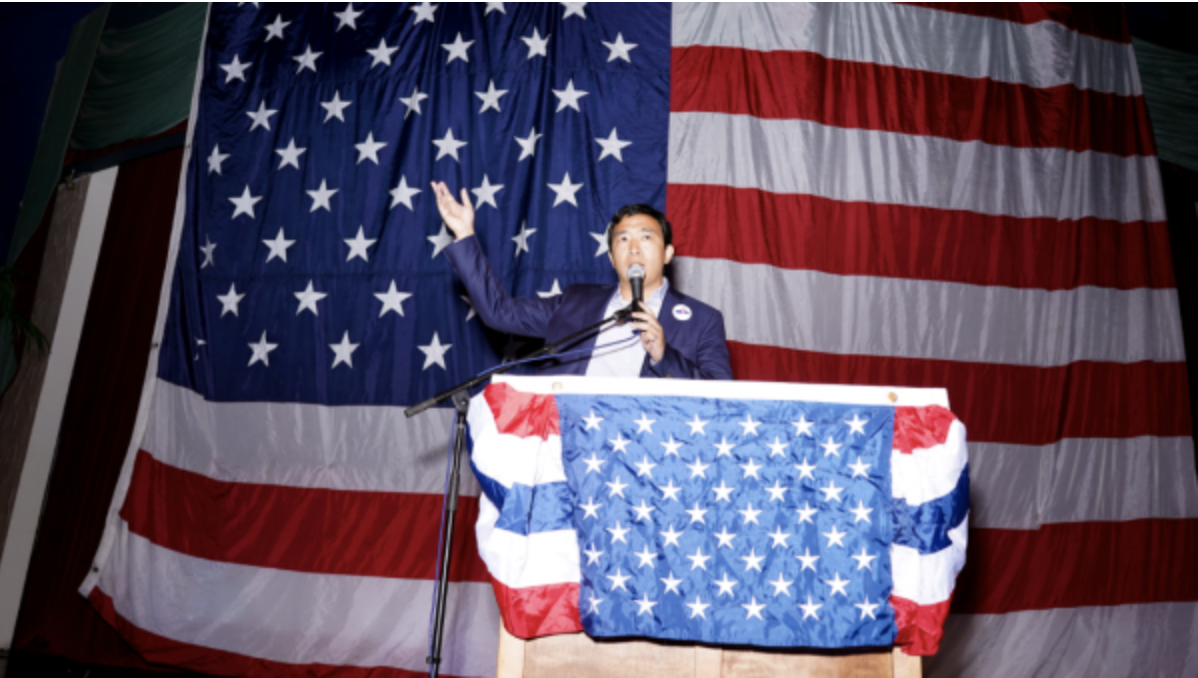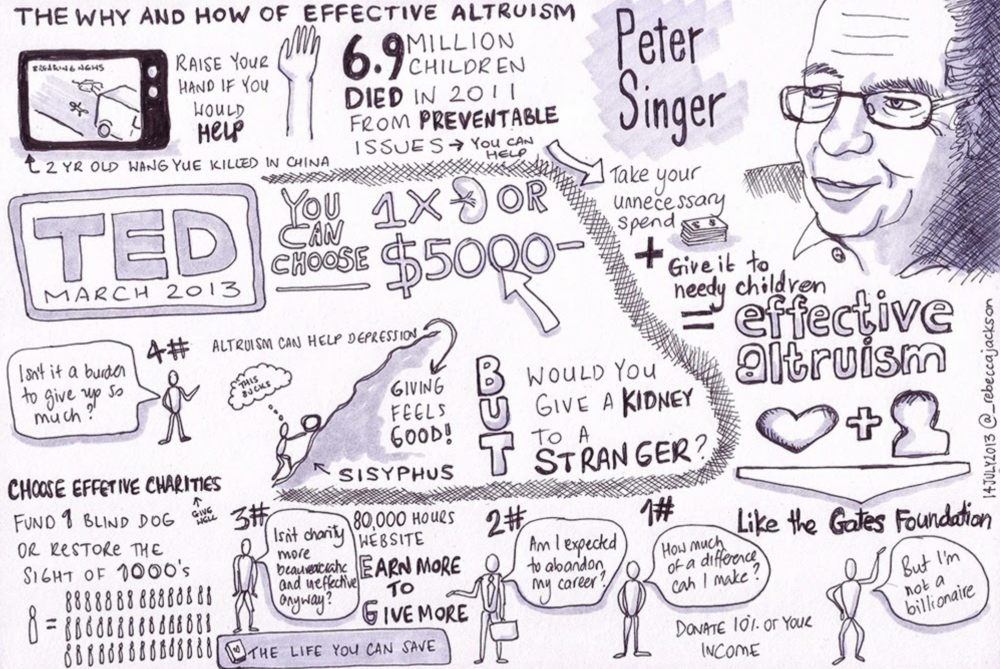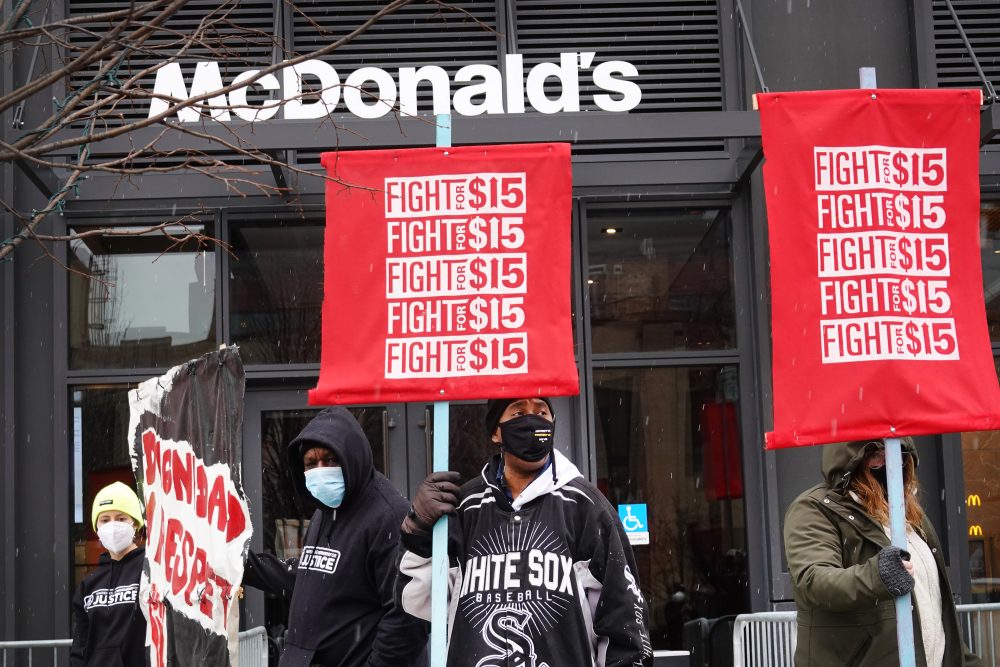
OLIVIA GINGOLD – MARCH 20TH, 2019
Many of the candidates running for president are high-profile, successful politicians who have already made a name for themselves. But one presidential candidate, Andrew Yang, is not quite like the rest. A 44 year-old entrepreneur and businessman, Yang diverges from the politician mold often embodied by most candidates in that he has maintained a relatively low political profile prior to his decision to run for president. Yang was not always a businessman or a political hopeful; he studied political science and economics at Brown University in undergrad, and got his law degree from Columbia. He started out as a corporate lawyer before switching to business and entrepreneurship later in life. After his stint in law, he built a company called Venture for America, which trains young individuals and recent graduates to start their own businesses and succeed as entrepreneurs. A lot of Yang’s policies focus on the economy, and he emphasizes this, stating that his involvement in the business world lends him a unique insight into the economy that career politicians lack.
The most significant economic proposal Yang supports is a Universal Basic Income or UBI. Yang’s UBI, which he has dubbed the “Freedom Dividend,” would consist of a $1,000 per month stipend for Americans between the age of 18 and 64. A Roosevelt Institute study found that, on a macroeconomic level, the $1,000 per month stipend would grow the economy anywhere from 12.56% to 13.10%, increase employment by 2%, and expand the labor force if paid for using deficit. If paid for by a tax, like the value-added tax Yang proposes, UBI would not grow the economy, but instead significantly redistribute income in America, addressing the issue of inequality, while still having the same positive impacts such as increasing employment and expanding the labor force. Some worry about the social impacts of a UBI. An analysis done by Forbes worries that not only will the cost of this program be stupendous, but also that the money the government would have otherwise spent on critical investment projects like hospitals, roads, or schools will be diverted to paying for UBI instead.
UBI is not the only form of governmental assistance Yang supports. In his policies page he expresses plans to support a subsidy for people moving homes for work, offer free marriage counseling for anyone on a federal medical plan, and increase assistance for single parents whose data shows are a growing denomination in America.
How does Yang intend to pay for all of these government programs? The answer: taxes. A Value-Added Tax is one of the taxes proposed by Yang. It is with this tax that Yang plans to pay for the “Freedom Dividend.” A value-added tax is different from regular retail taxes in that it taxes a product at different points along the production chain, rather than just at final sale. For example, for a loaf of bread, the wheat used to make the bread would be taxed, the baker who sells the bread to the supermarket would be taxed, and then the supermarket who sells the bread on its shelves will be taxed, so that at each point value was added, the product was taxed. Yang also proposes a financial transaction tax which taxes every financial transaction, holding financiers to higher accountability when making transactions while generating revenue. This policy has been implemented in places like France and other countries in the EU. A report by Brookings acknowledges that the revenue raised by this tax is significantly large because its base (meaning the number of financial transactions that occur) is large in volume. People who oppose the tax worry that it will lead to tax evasion. In addition to these, he also supports a Capital Gain and Carried Interest tax, which tax money made after selling an asset held for over a year and shares of the profit of an investment paid to an investment manager, respectively. Yang also pushes a policy for filing income taxes that will reduce the burden than filing taxes puts on families, and make tax day a national holiday.
Yang’s government programs give insight into what the focuses of his presidency would be: a progressive agenda which makes government money available for affordable college (both community and 4-year), medicare, UBI, and spending on other government programs. Beyond this, Yang’s policies focus on institutions that are threatened by technology including the local journalism fund, protection for truck drivers whose jobs become obsolete as a result of automation, and a $6 billion fund for shopping malls.
Ultimately, Yang’s policies all stress the need for a new type of economy that puts people first. However, the costs that come with the new programs he wants to implement are cumbersome, even with the taxes he proposes to offset these costs. His desire to put people first remains apparent not only in policies mentioned above, but also in a lot of other policies he proposes that are outside of the economic realm but still relate to the economy. Free Financial Counseling for all is another. Establishing a minimum amount of mandatory paid leave for people working in business, which allows families to spend more time together, is yet another example of this “people first” economy. Ultimately, Yang’s website is well laid out, and if any of his policies seem curious or questionable, it is easy to navigate through them to find out more.
Featured Image Source: Council on Foreign Relations
Disclaimer: The views published in this journal are those of the individual authors or speakers and do not necessarily reflect the position or policy of Berkeley Economic Review staff, the Undergraduate Economics Association, the UC Berkeley Economics Department and faculty, or the University of California, Berkeley in general.



